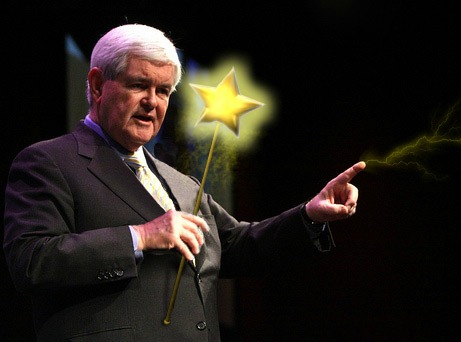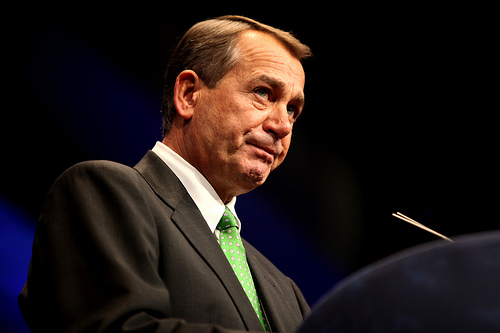Climate Energy
All Stories
-
Top 10 prices we want Newt to lower with his magic wand
Newt Gingrich promises he'll lower gas prices to $2.50 a gallon. As he's in possession of a magic wand that can override global market forces, there are a few other items we'd like to see priced lower.
-
Crazy-ass Japanese dub music video hates on nuclear power
Okay, it’s possible that this song by Rankin Taxi and the Dub Ainu band is just a teeny bit reductive about nuclear power. It’s also possible that it is SUPER AWESOME. Somehow it is simultaneously serious, funny, angry, stylish, and catchy. As. Hell.
-
Natural born drillers: Why shale gas won’t end our energy woes
Energy utilities and politicians on both sides of the aisle are eager to swallow industry promises of a bright, shale-gas-powered future. But both history and the data show that a bust could be right around the corner.
-
Zombie pipeline! Senate narrowly kills Keystone XL — for now
The Senate on Thursday voted down a provision that would have rubber-stamped the Keystone oil pipeline. But this undead monster refuses to stay down.
-
Engine failure: GOP’s signature highway bill sputters, dies
With his $260 billion highway-building proposal sputtering, House Speaker John Boehner resorted to pleading and threats. In the end, the bill is headed for the junk heap.
-
Watch today’s solar flare erupt from the sun
Two solar flares burst out of the sun on March 6. NASA notes: “One of the most dramatic features is the way the entire surface of the sun seems to ripple with the force of the eruption.” Badass! The first flare was the second largest of this solar cycle (which started in 2009), and it’s […]
-
In 2014, corn biofuel is out, wood biofuel is in
Biofuel sounds like a pretty good idea — down with power plants, up with regular plants! — but if the country switches over to corn ethanol we will basically be unable to grow any other crops. A new study has calculated that corn destined for ethanol production would have to take over 80 percent of […]
-
Map shows what a U.S. Fukushima could have looked like
With the one-year anniversary of the Fukushima reactor crisis approaching, the Natural Resources Defense Council has put together a mapping tool that lets you envision what could have happened if one of the 104 U.S. reactors had suffered a similar accident. The take-home message: If you live on the East Coast, you’re practically guaranteed to […]
-
Dennis Kucinich, eco-darling and vegan, ousted from Congress
Congress will soon lose one of its most progressive environmentalists, Rep. Dennis Kucinich, who was beaten in his Democratic primary race on Tuesday. Maybe now he'll have time to finish writing his vegan diet book.
-
Mad Rush: Limbaugh claims solar and wind industries don’t exist
Rush Limbaugh declares that the multi-billion-dollar solar and wind industries simply don't exist.









